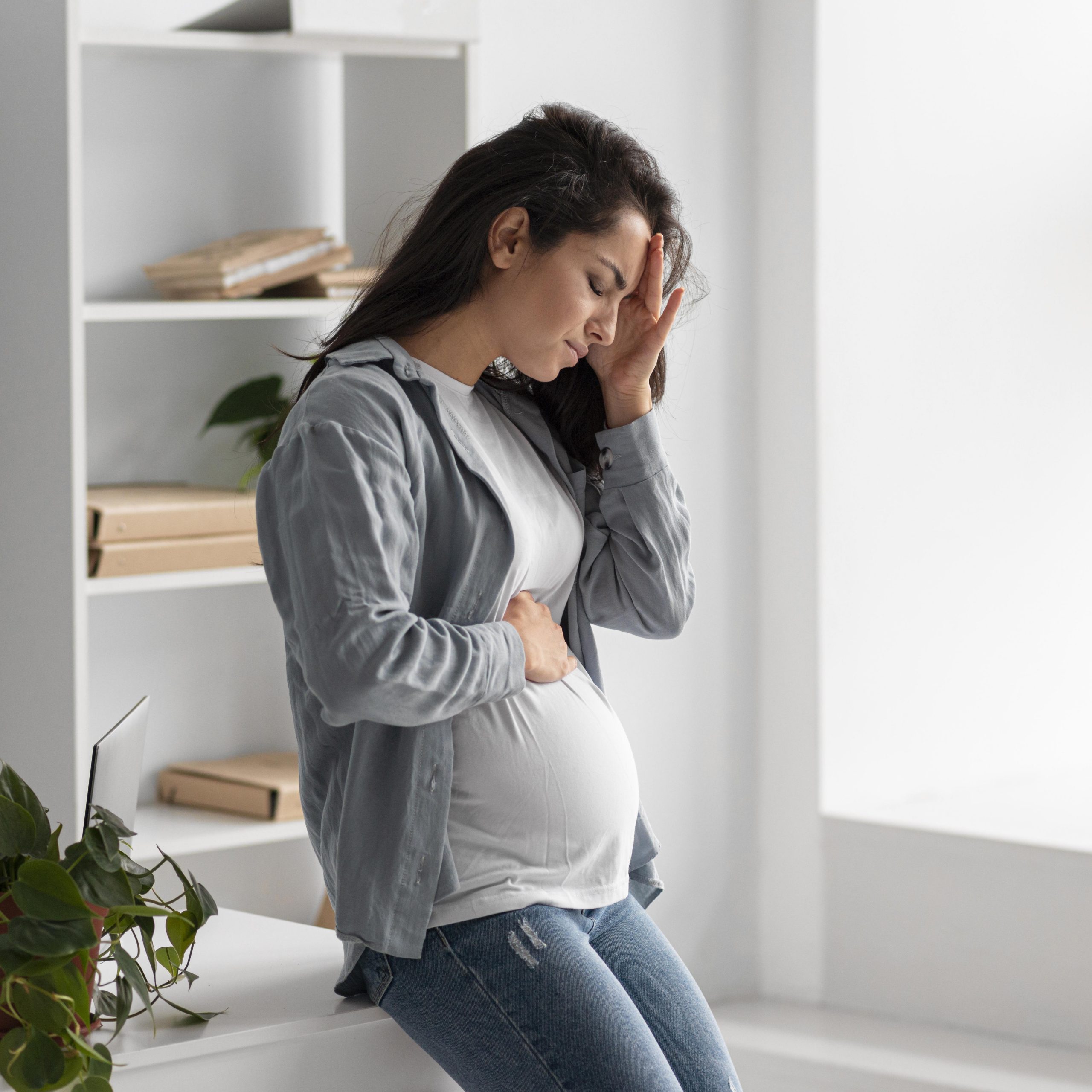

Researchers from Weill Cornell Medicine, Johns Hopkins University School of Medicine, and Columbia University Irving Medical Center have shown that pregnant women with anxiety have an immune system that differs biologically from pregnant women without anxiety.
The research, which was released on September 14, 2022, in the journal Brain, Behavior, and Immunity, shows that anxious pregnant women have larger amounts of cytotoxic T cells, which are immune cells that go after diseased or otherwise damaged cells in the body. Also, the blood-circulating immunological markers in anxious women behaved differently. This is the first research to assess how anxiety affects the course of immunological alterations throughout pregnancy and the postpartum period.
“Women with anxiety appear to have an immune system that behaves differently from that of healthy women during pregnancy and after delivery,” said principal investigator Dr. Lauren M. Osborne, vice chair for clinical research for the Department of Obstetrics and Gynaecology at Weill Cornell Medicine, who conducted the research while on Johns Hopkins University School of Medicine’s faculty. “During pregnancy, a delicate dance is supposed to occur, in which the immune system changes so that it does not reject the fetus but is still strong enough to keep out foreign pathogens.”
According to Dr. Osborne, a reproductive psychiatrist at NewYork-Presbyterian/Weill Cornell Medical Center, this study may stimulate improved treatment of anxiety in pregnant patients. Despite evidence to the contrary, she observes as a physician that women with anxiety may avoid using antianxiety medications out of concern for the welfare of the unborn child.
According to the researchers, anxiety during pregnancy, which is self-reported by more than 20% of adults, is already known to be harmful to the parent and kid. For instance, it may raise the possibility of premature birth and lower birth weight for the baby.
Dr. Osborne and her associates evaluated 107 pregnant women for this study, 56 of whom had anxiety and 51 of whom did not, in the second and third trimesters as well as six weeks after giving birth. Blood samples were examined for immunological activity by the researchers, and psychological tests were taken to look for signs of clinical anxiety.
They discovered that the numbers of cytotoxic T cells were higher in anxious women during pregnancy and then dropped in the weeks following delivery. The activity of these cells decreased during pregnancy and after delivery in women who did not experience worry.
The researchers also observed that the activity of largely pro-inflammatory cytokines, or substances secreted by cells as part of the immune system response, was suppressed during pregnancy in women with anxiety and then rose after childbirth, while healthy women exhibited the opposite pattern.
“The takeaway is that this is the first clear evidence that immune activity differs for pregnant women depending on their anxiety status. Knowing that there is immune system involvement is a first step toward understanding the biological factors related to anxiety in pregnancy, and a first step toward developing new treatments,” said Dr. Osborne. “We know that anxiety needs to be treated to ensure healthy outcomes for both mother and child.”
more recommended stories
 Nanoplastics in Brain Tissue and Neurological Risk
Nanoplastics in Brain Tissue and Neurological RiskKey Takeaways for HCPs Nanoplastics are.
 AI Predicts Chronic GVHD Risk After Stem Cell Transplant
AI Predicts Chronic GVHD Risk After Stem Cell TransplantKey Takeaways A new AI-driven tool,.
 Red Meat Consumption Linked to Higher Diabetes Odds
Red Meat Consumption Linked to Higher Diabetes OddsKey Takeaways Higher intake of total,.
 Pediatric Crohn’s Disease Microbial Signature Identified
Pediatric Crohn’s Disease Microbial Signature IdentifiedKey Points at a Glance NYU.
 Nanovaccine Design Boosts Immune Attack on HPV Tumors
Nanovaccine Design Boosts Immune Attack on HPV TumorsKey Highlights Reconfiguring peptide orientation significantly.
 High-Fat Diets Cause Damage to Metabolic Health
High-Fat Diets Cause Damage to Metabolic HealthKey Points Takeaways High-fat and ketogenic.
 Acute Ischemic Stroke: New Evidence for Neuroprotection
Acute Ischemic Stroke: New Evidence for NeuroprotectionKey Highlights A Phase III clinical.
 Statins Rarely Cause Side Effects, Large Trials Show
Statins Rarely Cause Side Effects, Large Trials ShowKey Points at a Glance Large.
 Anxiety Reduction and Emotional Support on Social Media
Anxiety Reduction and Emotional Support on Social MediaKey Summary Anxiety commonly begins in.
 Liquid Biopsy Measures Epigenetic Instability in Cancer
Liquid Biopsy Measures Epigenetic Instability in CancerKey Takeaways Johns Hopkins researchers developed.

Leave a Comment